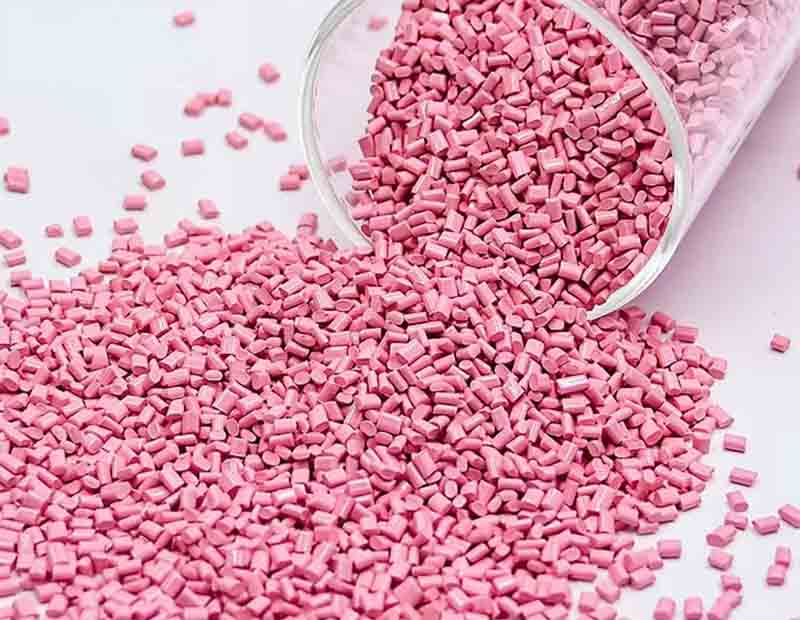PPSU Plastic Material: Comprehensive Guide
Introduction to PPSU
Polyphenylsulfone (PPSU) is a high-performance thermoplastic material belonging to the sulfone polymer family. This amorphous polymer is renowned for its exceptional combination of thermal stability, chemical resistance, and mechanical strength. PPSU stands out among engineering plastics due to its ability to maintain properties at elevated temperatures while offering excellent transparency in its natural state.

Key Characteristics of PPSU
1. Thermal Properties
PPSU exhibits outstanding thermal stability with a glass transition temperature (Tg) of 220°C and can withstand continuous service temperatures up to 180°C. Its heat deflection temperature (HDT) at 1.82 MPa reaches 207°C, significantly higher than other transparent thermoplastics like polycarbonate (PC) or polymethyl methacrylate (PMMA). The material maintains dimensional stability across a wide temperature range from -40°C to +160°C.
2. Mechanical Strength
With a tensile strength of 70-75 MPa and flexural modulus of 2.3-2.5 GPa, PPSU demonstrates remarkable mechanical properties. Its impact strength of 85 kJ/m² (notched Izod at 23°C) surpasses most engineering plastics, making it highly resistant to cracking or breaking under stress. The material shows creep resistance superior to Polysulfone (PSU) and Polyethersulfone (PES), maintaining 90% of its initial modulus after 1000 hours at 100°C under load.
3. Chemical Resistance
PPSU resists hydrolysis and maintains stability when exposed to pH ranges from 2 to 13. It withstands repeated steam sterilization cycles at 134°C and shows excellent resistance to acids, bases, alcohols, and hydrocarbon solvents. The material's water absorption rate is only 0.37% after 24 hours immersion, significantly lower than many competing polymers.
4. Optical Properties
Natural PPSU offers light transmission of 80-85% in the visible spectrum with a haze value below 1%, comparable to polycarbonate. Its refractive index of 1.67 makes it suitable for optical applications. The material maintains optical clarity after repeated sterilization cycles, with less than 5% transmittance loss after 100 autoclave cycles.
5. Electrical Properties
PPSU demonstrates excellent dielectric properties with a dielectric strength of 16 kV/mm and volume resistivity of 10¹⁶ Ω·cm. Its dissipation factor remains below 0.003 across a wide frequency range (50 Hz to 1 MHz), making it suitable for high-frequency applications.
Applications of PPSU
Medical and Healthcare
Surgical instrument components requiring repeated sterilization
Dental instrument handles and autoclavable components
Medical device housings and connectors
Neonatal care equipment and incubator parts
Dialysis machine components
Food Service and Processing
Commercial food service equipment
Microwave-safe food containers
Coffee machine components
Baby bottles and feeding accessories
Food processing machinery parts
Aerospace and Automotive
Aircraft interior components
Under-the-hood automotive applications
Electrical connectors in harsh environments
Sensor housings
Industrial Applications
Chemical processing equipment
Water treatment system components
Membrane supports for filtration
Electrical insulators
Maintenance and Care of PPSU Products
Cleaning Procedures
For optimal performance and longevity of PPSU products:
Use mild detergents with pH between 5 and 9 for routine cleaning
For disinfection, employ 70% ethanol solutions or hydrogen peroxide-based cleaners
Avoid abrasive cleaners or scouring pads that may scratch surfaces
For heavily soiled items, pre-soak in warm (≤60°C) detergent solution
Sterilization Methods
PPSU withstands multiple sterilization techniques:
Steam autoclaving: 121°C for 20 minutes or 134°C for 5 minutes
Gamma radiation: Up to 25-50 kGy dose
Ethylene oxide (EtO): Standard sterilization cycles
Hydrogen peroxide plasma: Low-temperature sterilization
Storage Recommendations
Store in clean, dry environments at 15-30°C
Protect from direct sunlight to prevent potential UV degradation
Keep away from strong oxidizing agents and concentrated acids
For long-term storage, use sealed containers to prevent dust accumulation
Handling Precautions
Avoid contact with ketones and chlorinated hydrocarbons
When machining PPSU, use sharp tools and adequate cooling
For bonding, use solvent welding with dimethylformamide (DMF) or cyanoacrylate adhesives
In high-stress applications, avoid continuous exposure to temperatures above 160°C






